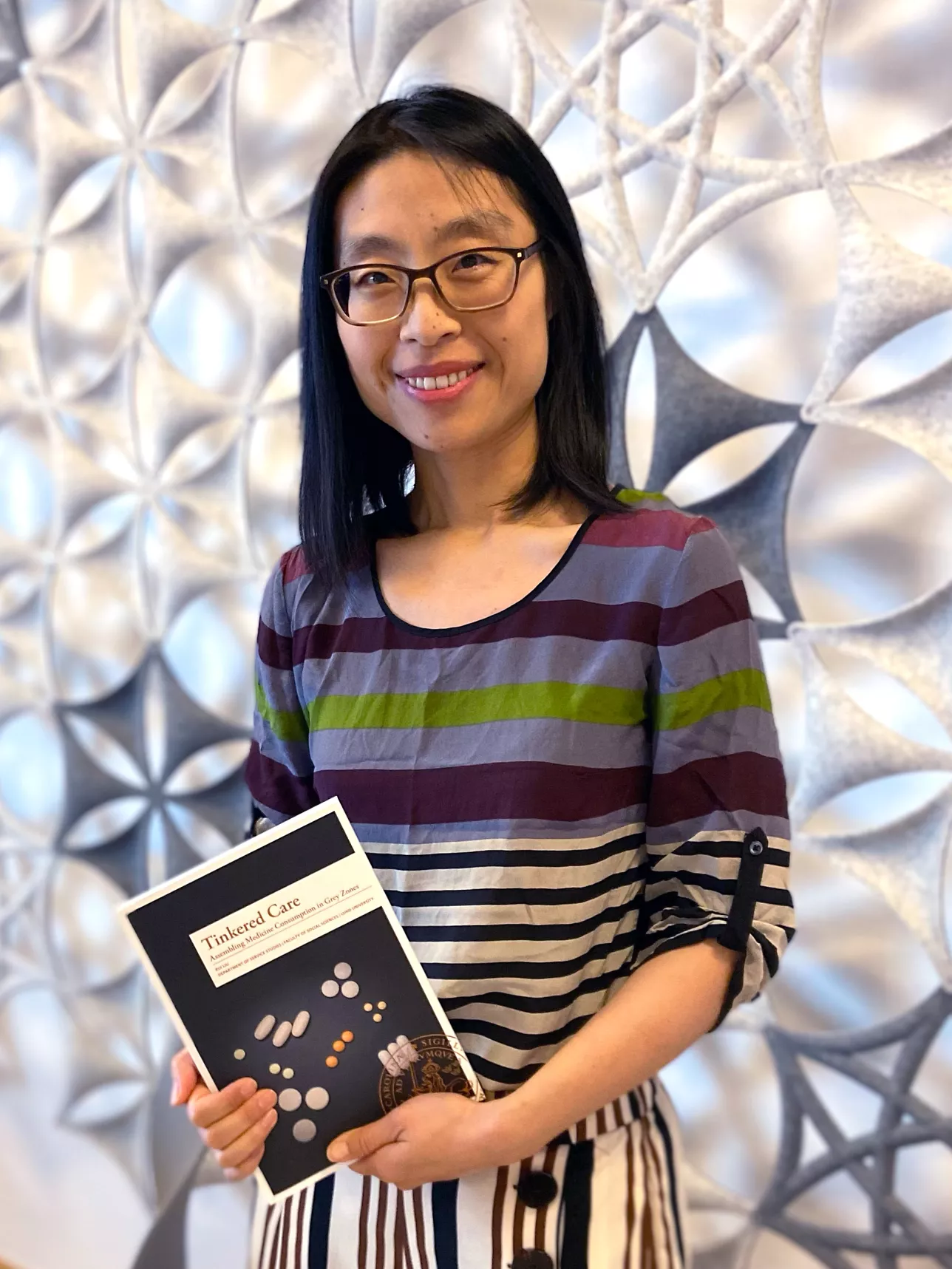Rui Liu: “I’m looking at doctor-patient relationships, care practices and particularly medicine access.”
How do care seekers navigate through healthcare services and make choices about where to access medicines? Rui Liu took an interest in the field of substandard and falsified medicine when she began with her doctoral studies. She had the ambition to focus on the grey zones and bring awareness of what counts as legal, ethical and moral.
With a bachelor’s degree in applied linguistics and two master’s degrees; one in Applied linguistics and the other one at Lund university in Applied cultural analysis, medicine consumption might seem like an unexpected topic for Rui Liu. It all began with a project together with an ethnologist who later came to be one of her supervisors.
Before starting her doctoral studies Rui was involved in an interdisciplinary project about medicine consumption, “Illegal drugs – gathering information from the public and doctors. A preliminary evaluation of the implementation of knowledge in society”. That made her interested in how people approach doctors and how they obtain medicines online or during travels abroad, where prescriptions are not required in other healthcare systems. It eventually became the topic of her thesis.
– I’m looking at doctor-patient relationships, care practices and particularly medicine access. It’s been a challenge to formulate a research question out of a very empirical phenomenon and make it a scientific question, says Rui.
Service studies being a multi-disciplinary field of study within social sciences has taken this study in a different direction than the topic usually leads to.
– The subject of substandard and falsified medicines has mainly been studied as a medical phenomenon. It’s been a challenge to exploring it from the social sciences setting. I’ve used qualitative methods. I did surveys and ethnography with care seekers, physicians and pharmaceuticals. I also analyzed a lot of data collected via Folk Life Archive at Lund University, says Rui.
Her work has led to the dissertation “Tinkered Care: Assembling Medicine Consumption in Grey Zones”. The thesis draws on the concepts of assembling and tinkering, and use empirical data collected from care seekers, physicians and pharmacy staff. The analysis suggests that the individual agency of care seekers is enacted and enabled in a context where an ability to adapt to a changing environment increasingly becomes a social norm. The findings lead to a conceptualization of care as a tinkered practice, with attentiveness and flexibility being two essential characteristics. However, tinkered care involves risks, especially in relation to medicine access and use.
With her thesis finished Rui is on the verge of completing her doctoral studies, and the years as a doctoral student is soon over.
– Here at the department, there is a strong Phd community, with a lot of information exchange and support, both emotional support and helpful suggestions on how to move forward. We have a great friendship. One of the best things we have in the group is the Phd writing retreat where we for a week or a couple of days travel and write together, says Rui.
– Being a doctoral student at Service Studies is in general a positive experience. As this is a cross disciplinary department, there is a high-level openness for diverse research designs . It is interesting and stimulating. I have learned a lot from it.

Rui Liu
Rui Liu is a former doctoral student at the Department of Service studies. Read more about Rui and her research.

